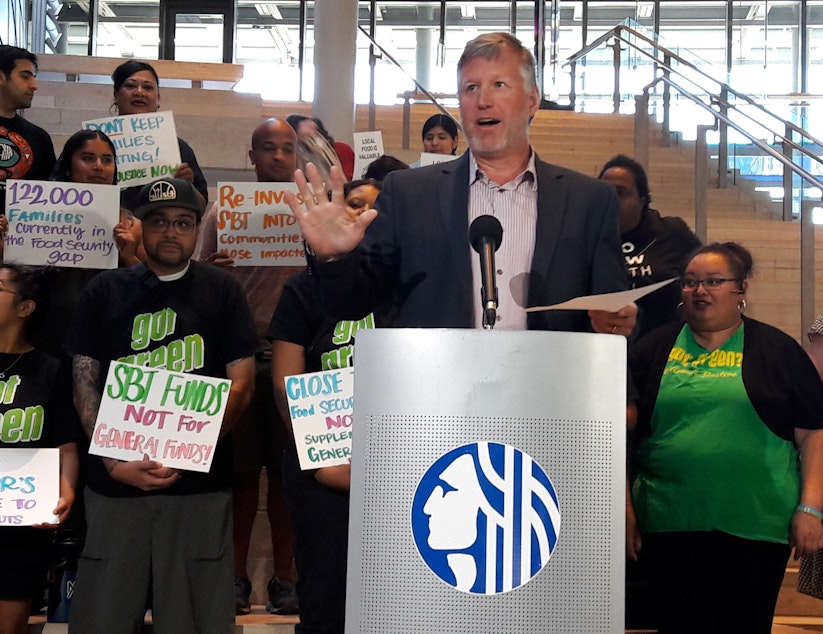Seattle council votes to protect soda tax money, but the fight's not over

Budget battles don't usually start until September, but Monday, Seattle Mayor Jenny Durkan said she will veto a bill that protects the city’s soda tax from being redirected.
The City Council voted 7-1 to dedicate those funds for programs that help communities disproportionately affected by the tax.
The council said the vote ensures funds will be used for programs to help low income families disproportionately affected by the soda tax.
Councilmember Mike O’ Brien said that was the intent when the council passed the tax in 2017, noting low income people disproportionately suffer the health effects of soda consumption.
“We need to reinvest those dollars raised right back into those communities to provide access to healthy alternatives,” he said.
Revenue from the soda tax has been higher than anticipated. Last year, the initial projection was $15 million, but later was revised to more than $20.6 million.
Sponsored
The mayor used the windfall for existing programs that are normally covered by the city's general funds. O'Brien said the money should've been used to expand programs that promote health and address food insecurity. He said the bill hopes to avoid a repeat of last year's budget scuffle.
Durkan argued the council's action will produce a $7 million budget gap. That's out of a budget of $5.9 billion.
Community organizer Tanika Thompson spoke in favor of the bill. She said it has helped expand Fresh Bucks, a program that helps low income families buy fruit and vegetables at farmers markets and supermarkets.
Thompson said the program is so popular they have a wait list of 3,500 families. “We need that money. We need that money to help those families out, to help those families make healthier food choices.”
Thompson added that low income families paid those taxes and should benefit from them.




